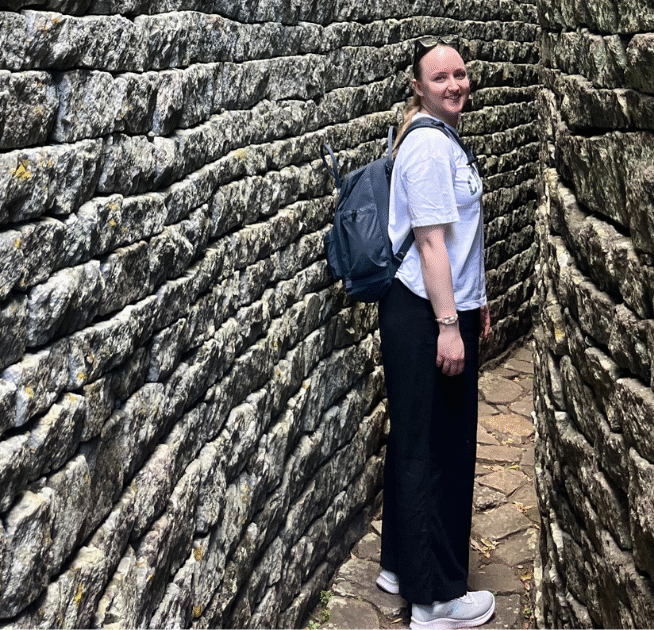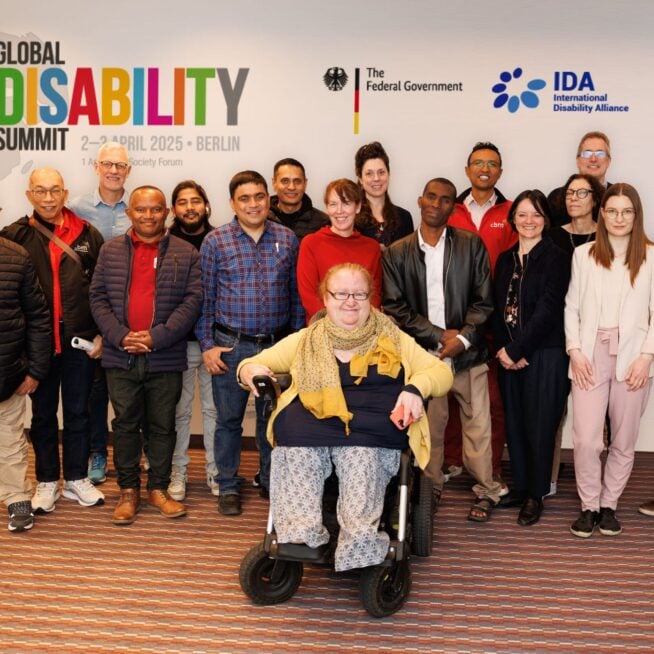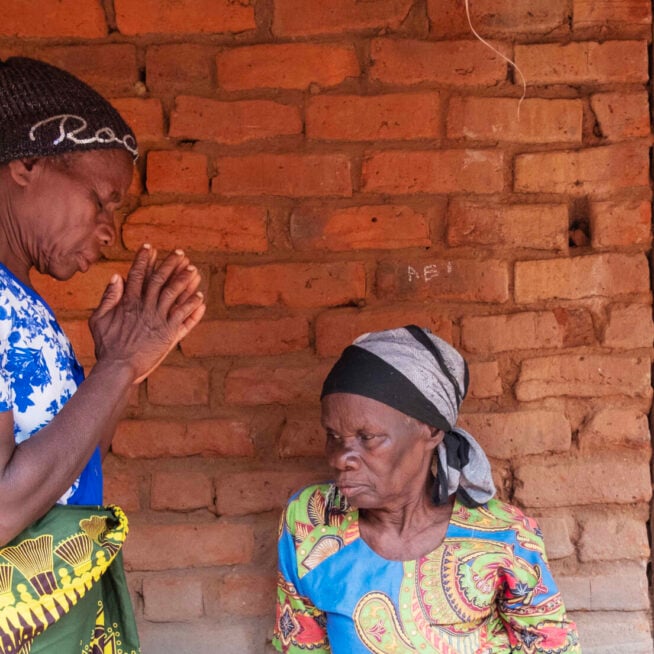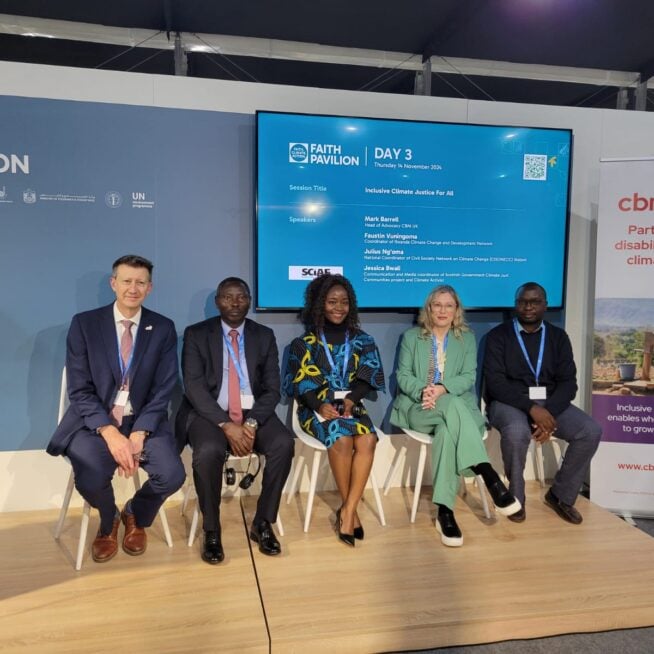Want to transform lives with us? Stay in touch and hear about our news, activities and appeals by email!
Sudip’s Miracle of sight
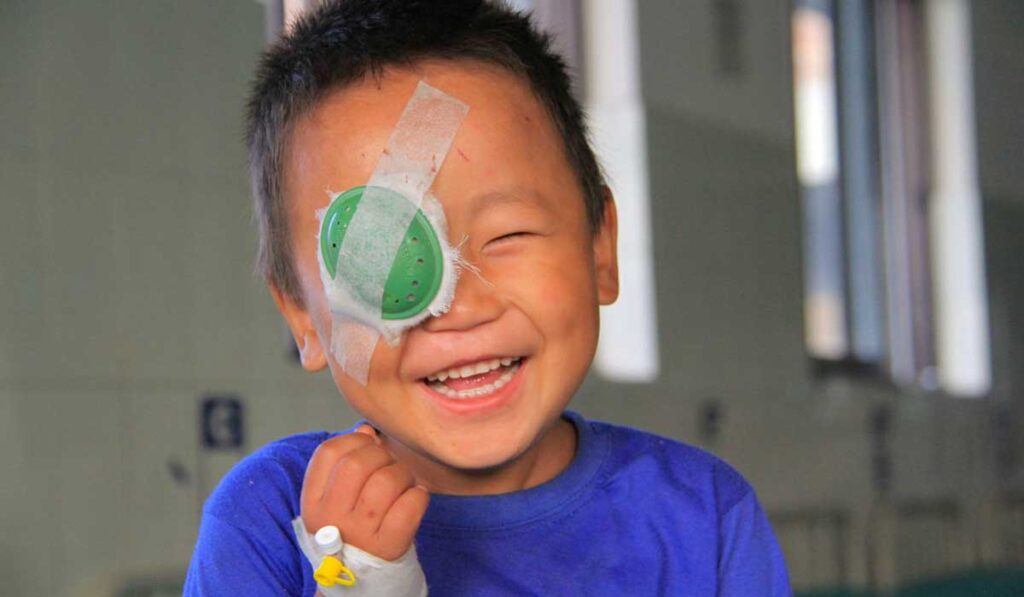
“I like to go to school. But I cannot read the letters on the blackboard… I want to study and become a police officer.”
5-year-old Sudip lives with his parents and three siblings in a remote village of Ilam district, about 600 kilometres east of Nepal’s capital Kathmandu. Their two-room mud hut is built on the slopes of Mai River – isolated and surrounded by tall trees and paddy fields. There’s a small plot of land nearby where the family grows rice, spinach and tomatoes.
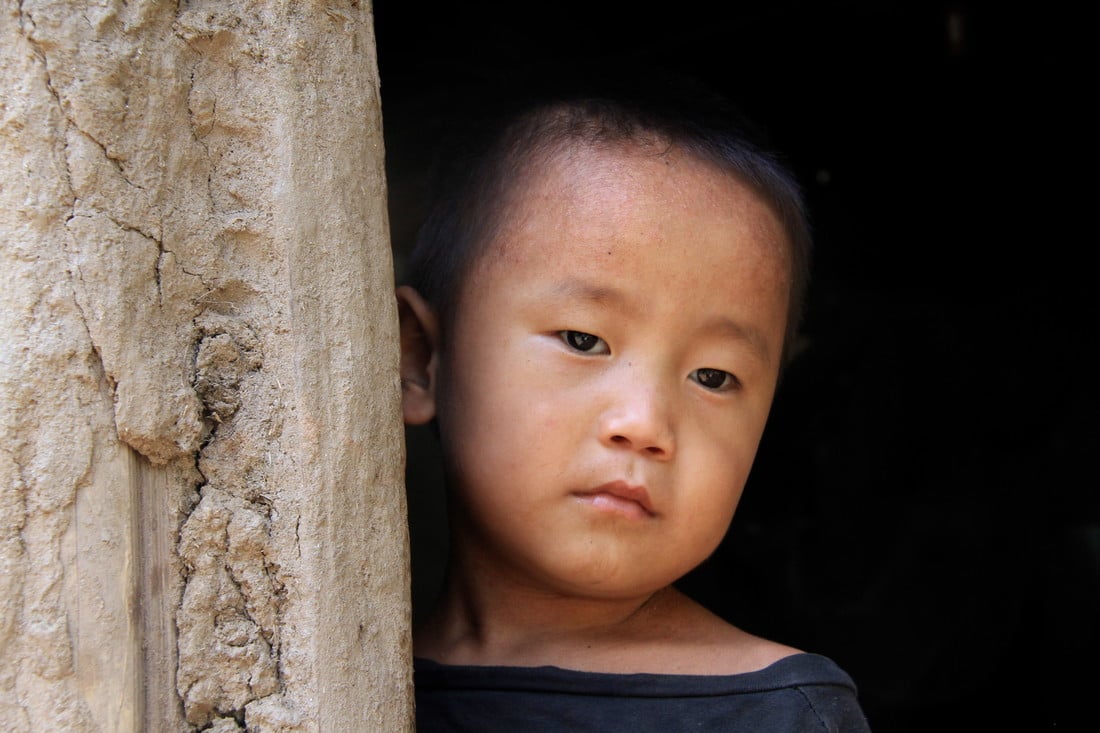
Sudip wasn’t born with sight problems. “One day Sudip told me that he couldn’t see things properly during sunlight. He would squint and try to see from the corner of his eyes. I didn’t know what to do.” explains his mother, Nirmala.
Sudip’s parents took him to a traditional healer. “The priest performed a long prayer and gave special water to clean the boy’s eyes. We did that for a few months. But it didn’t help… Gradually, Sudip’s eyesight grew worse. He stopped playing around the house. He would mostly remain indoors.” says his father, Sher.
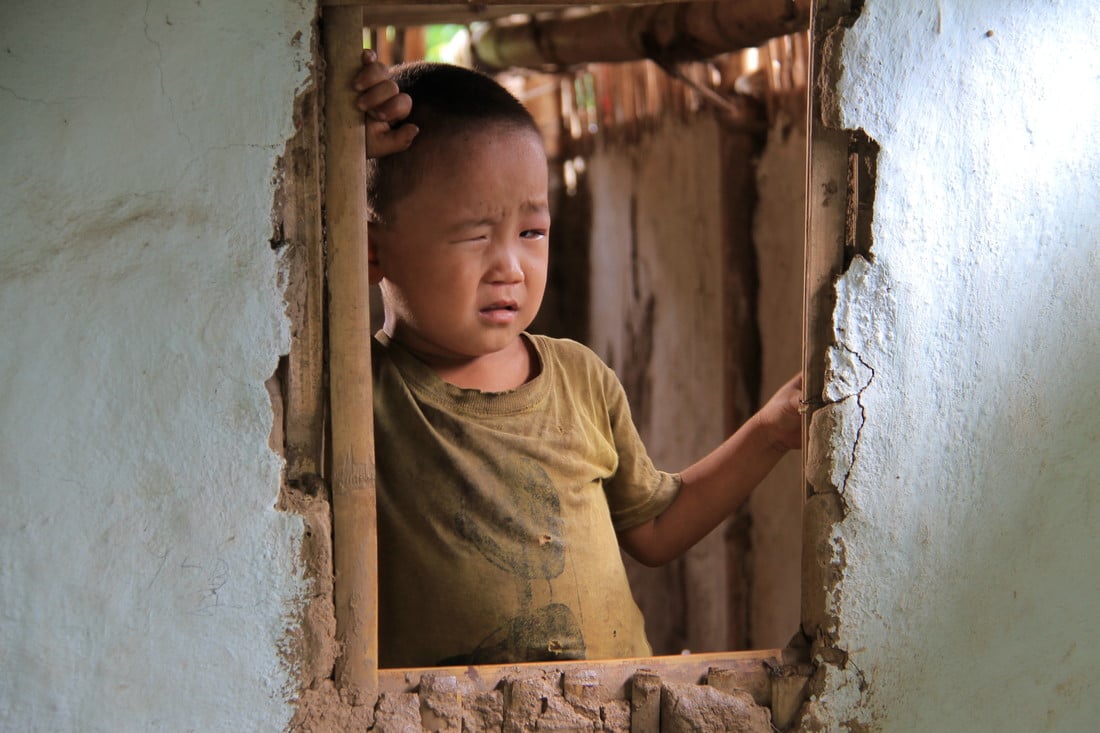
Why did Sudip’s parents not take him to an eye clinic? They simply could not afford the cost of sight-saving treatment. “I thought of taking him to the district hospital in Ilam Bazaar. But some relatives told me that eye treatment can be expensive.” explains Sher.
To begin with, Sudip’s father carried him to school every morning, but he couldn’t keep doing this as he needed to go out to work and earn money to support the family. Instead, Sudip walked an hour to school, with his sister holding his hand and guiding him.
“I met one of Sudip’s teachers who told me that he had a serious visual impairment. He couldn’t read the letters on the blackboard… The teacher warned me that Sudip should get treatment soon. If untreated, his condition could get worse. That really hurt me. I felt so helpless. I didn’t know what to do,” remembers Sher sadly.
During monsoon season, Sudip’s parents worried for his safety – every time he walked to school, he risked slippery slopes and landslides. And when he returned from school, he would tell his parents he’d been bullied by other children “Sadly, Sudip wasn’t treated well at school. Sometimes he would come home and tell me, ‘Mama, please treat my eyes soon. I cannot see things properly. My friends tease me all the time. They don’t let me play with them.’” says Nirmala. She was so concerned about her son’s future, she prayed every night for God to heal his eyes.
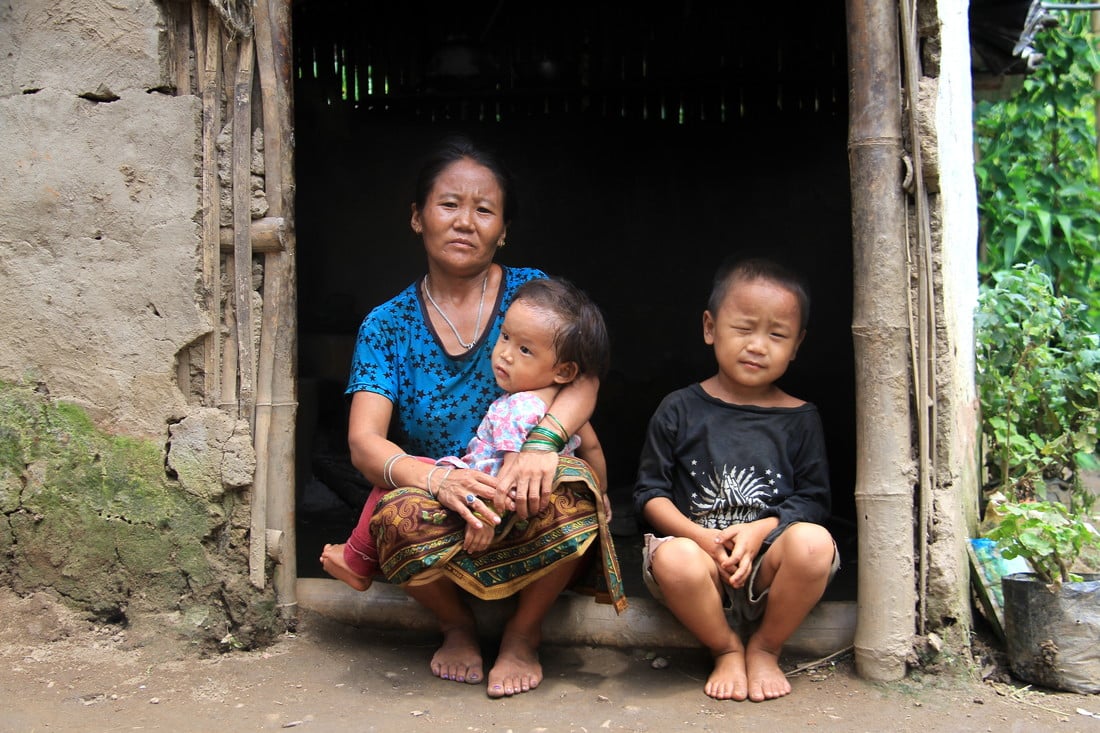
Thankfully, community worker Parshuram heard about Sudip’s sight problems from his teacher. Parshuram works for CBM’s partner hospital in Nepal, Biratnagar Eye Hospital (BEH), and his job is to visit communities in Ilam district to identify people with visual impairment and refer them for treatment.
An eye examination reveals that Sudip has cataracts in both eyes. “Sudip needs immediate intervention. He squints a lot and cannot even recognize the letter in the first row” says Parshuram. He tells the family not to worry as Sudip will be able to get free treatment at Biratnagar Eye Hospital.
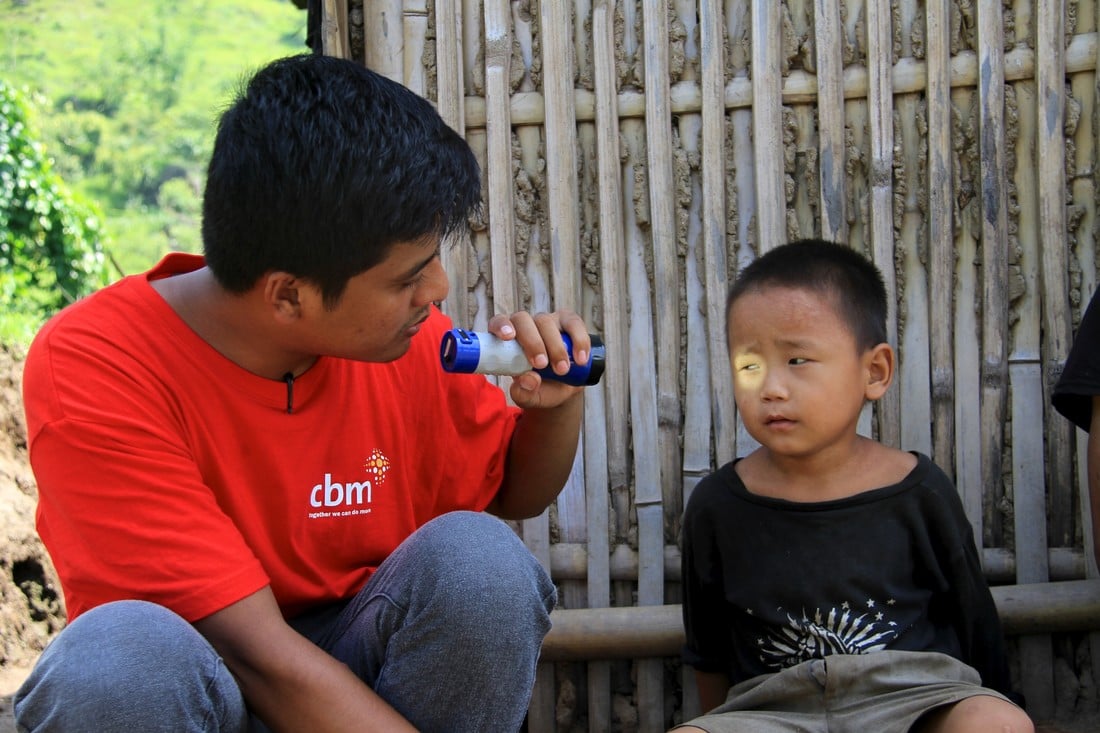
“Is this the big eye hospital, papa?” asks Sudip. “Yes, we’re now at the big eye hospital. We’ll stay here for a few days. The doctors will treat your eyes. After that you can see everything clearly,” replies his father. “Yes, the doctor will make me sleep and heal my eyesight” says Sudip.
There are seven other children scheduled to have cataract surgery on the same day as Sudip – and 180 adult surgeries. It’s a busy but typical day at the eye hospital, as patients come from all across Nepal as well as northern India.
Ophthalmologist Sanjay performs Sudip’s operation. The next morning his eye patch is removed… will it be a new beginning for Sudip?
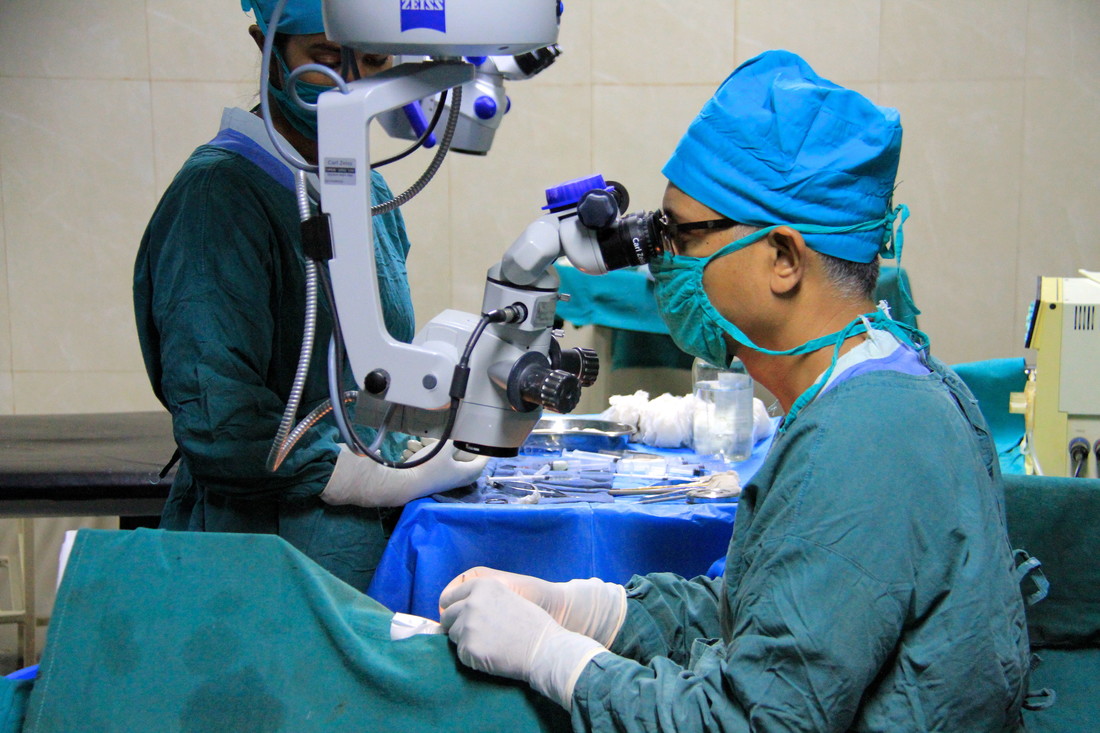
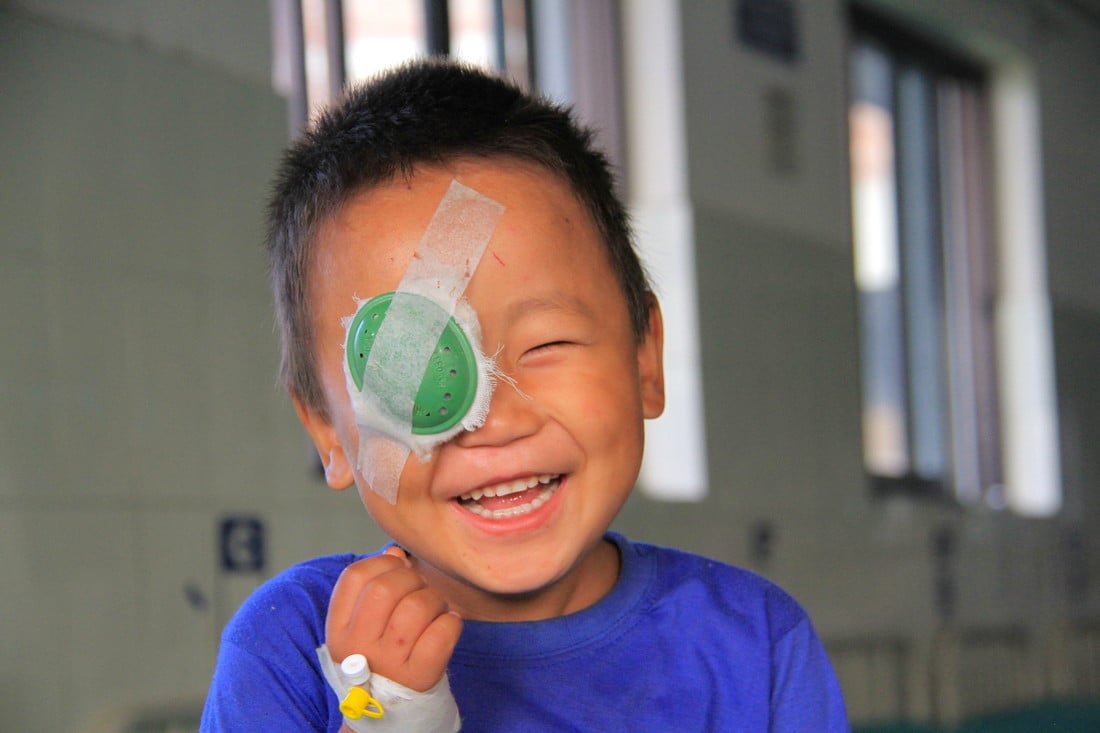
Sudip cautiously starts to open his right eye. “I can see your face so clearly, papa!” he exclaims “My eyes are healed! I can see so many things around me!” he adds, hugging his father. Sher is choked with emotion “I’m so happy today. Sudip has finally received surgery on his right eye. And the results are amazing – he can see things much better than before”
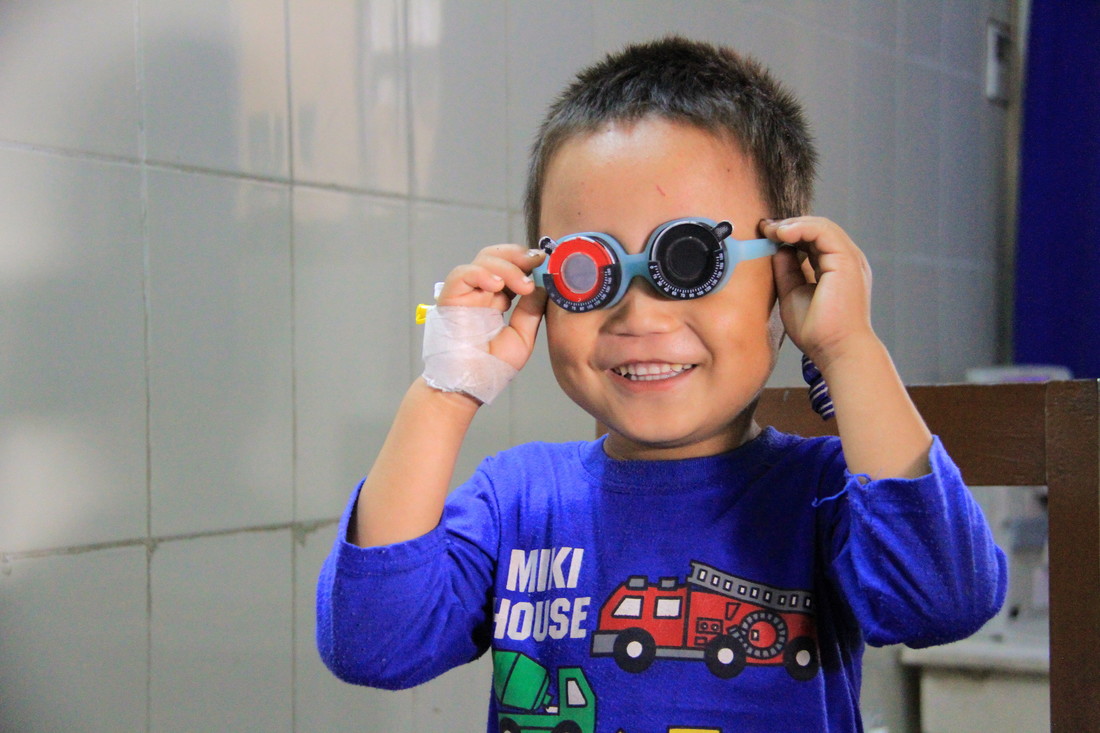
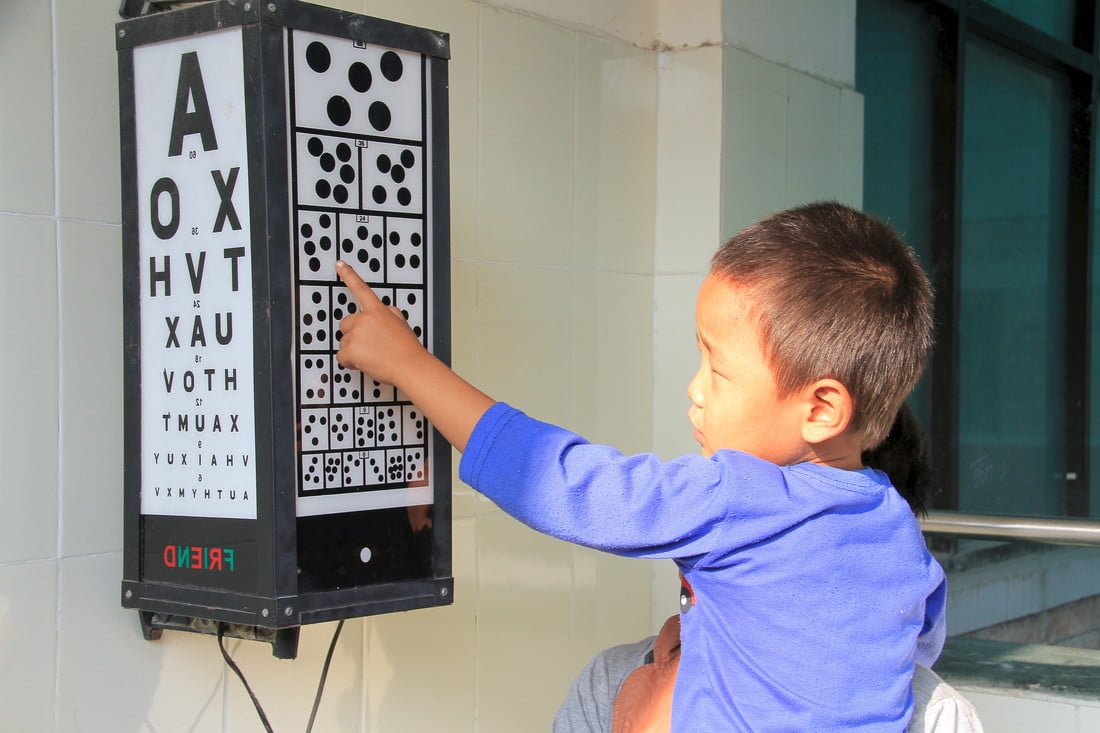
Sudip returns to the hospital for surgery on his left eye and is then prescribed glasses for near vision. His parents are keen for him to return to school once his eyes have healed.
At school, Sudip’s friends are happy to see him back and they all crowd around him to look at his new glasses. “I got them at the hospital,” says Sudip with sheepish smile. “I can see everything now. I can even see your faces,” he adds, as everyone giggles with him.
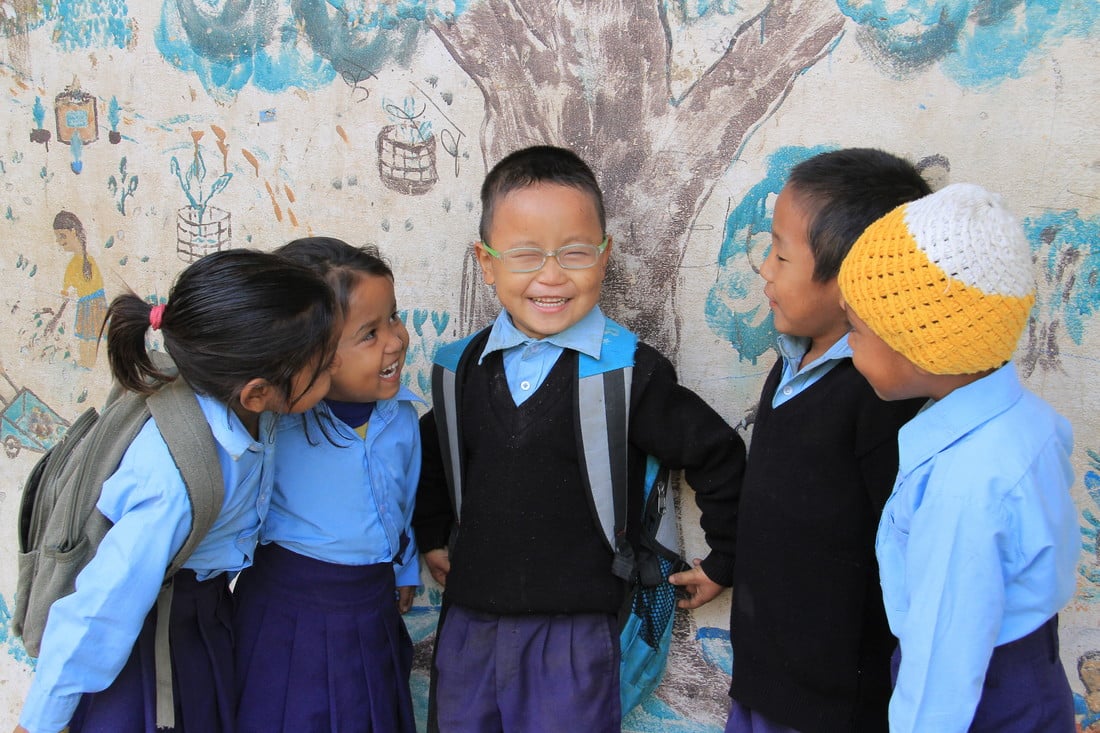
“I like to sing rhymes with my friends. I like to read and write the alphabets,” says Sudip. “I want to play football. That’s my favourite sport… I never played football here as I couldn’t see properly… When my eyes are treated completely, I’ll also run and play football with my friends.”
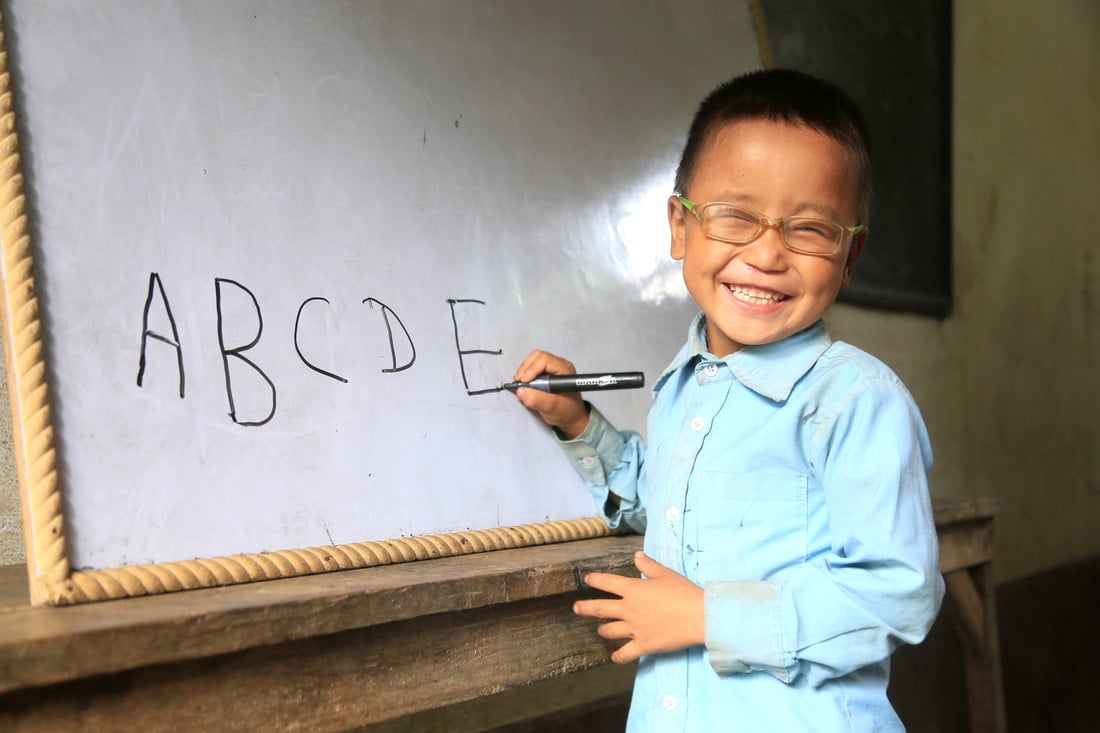
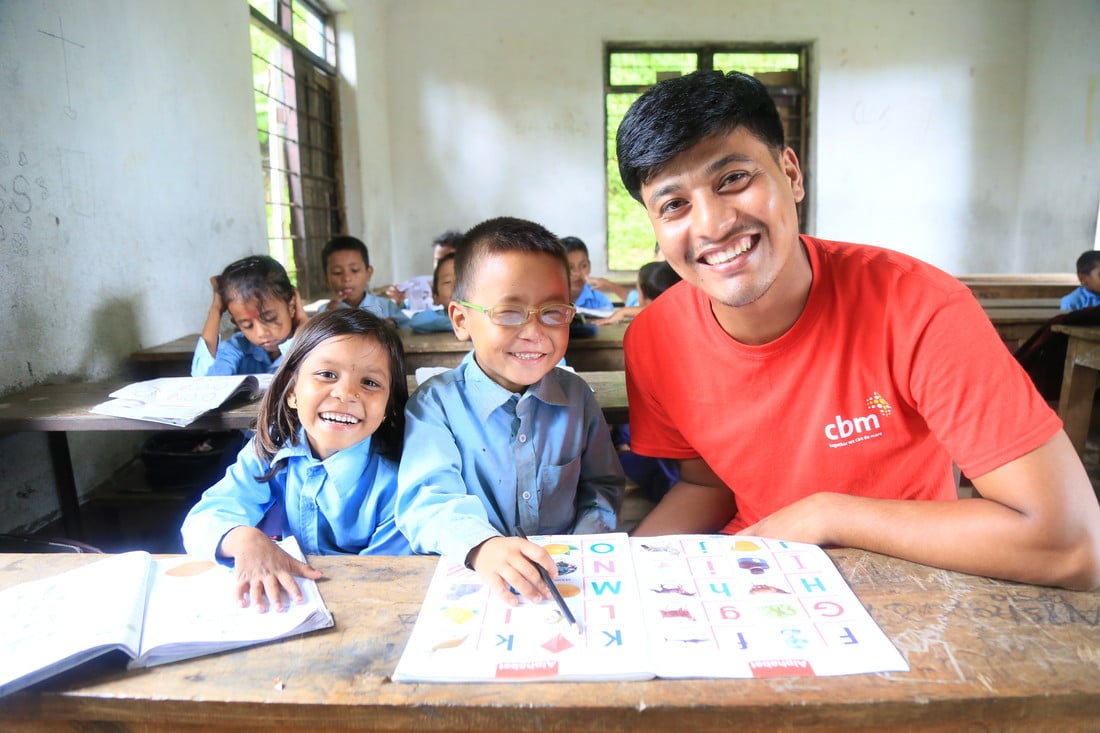
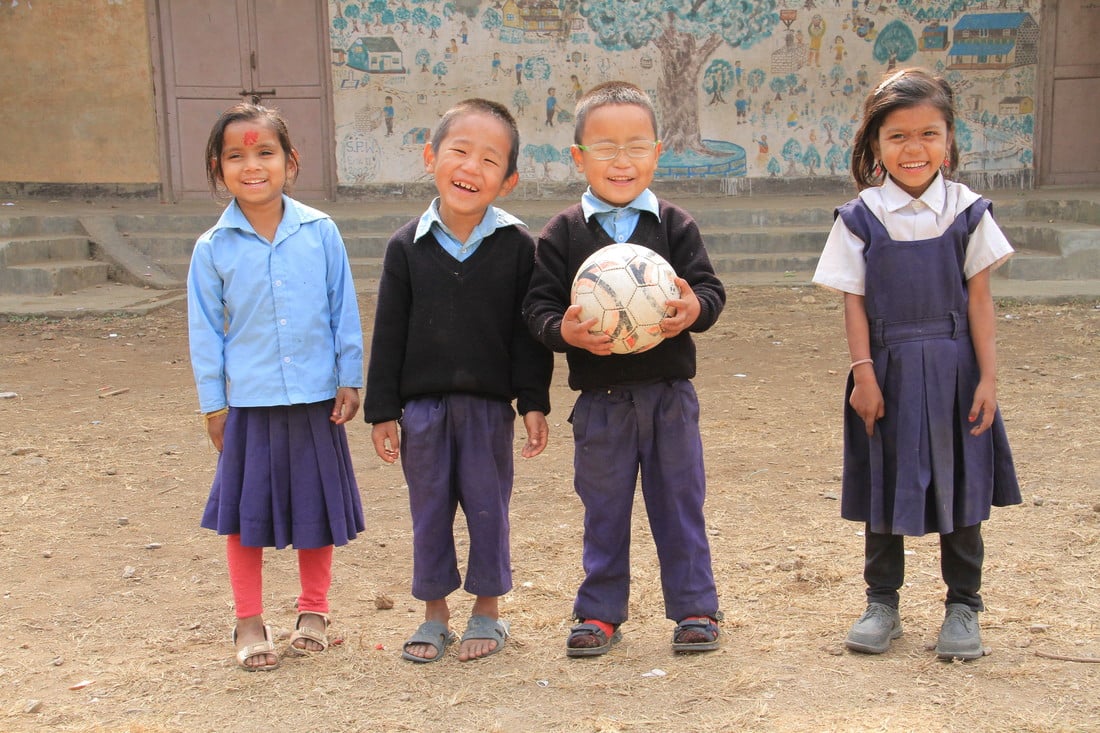
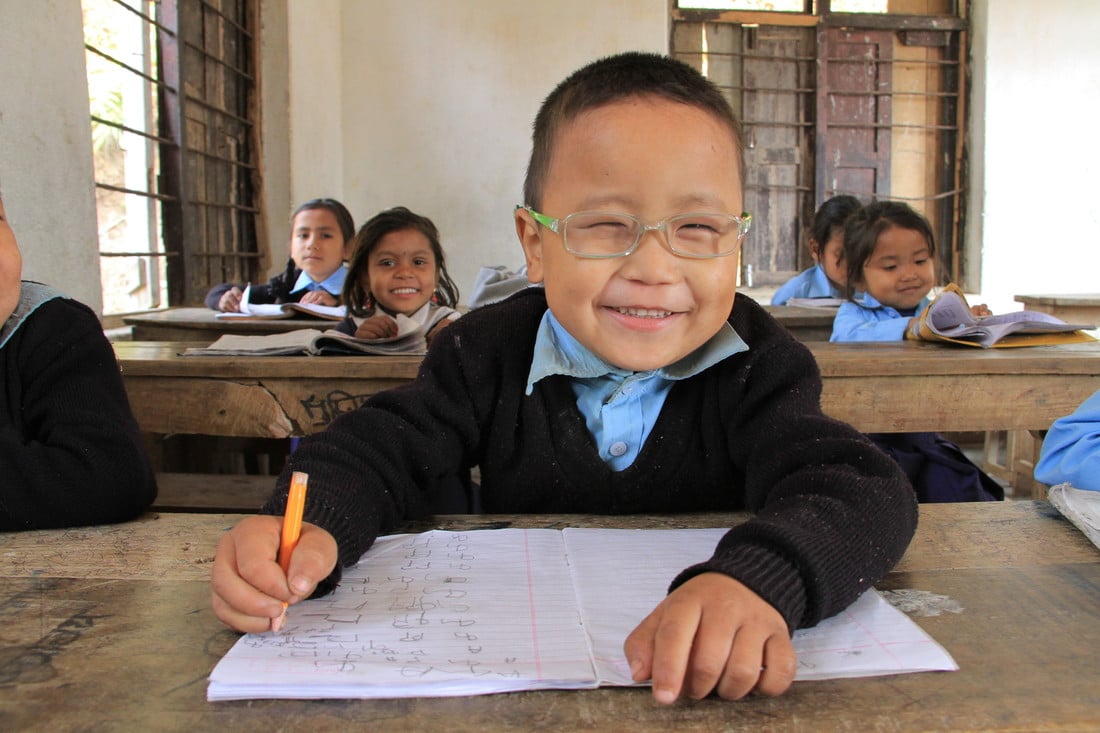
This Christmas you can give the Miracle gift of sight to more children, like Sudip, living in the world’s poorest places. Go to www.cbmuk.org.uk/miracles
Every £24 you send today will help provide a 15-minute sight-saving surgery that gives someone back their sight. That’s what Miracles are made of.
Children living with sight loss and disabilities are more likely to miss out on education than any other group, making up a third of all children who are not in school. But education is one of the main ways we can stop cycles of poverty, because receiving an education means that there is a chance of better employment in the future.
The sooner we can reach children like Sudip, the better. Getting children back into school is important, and it’s crucial that we take action as soon as possible, not just so children have a better future, but so that their bodies can develop and heal properly after surgery.

